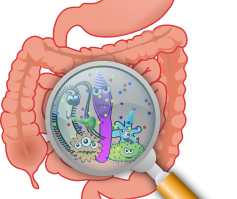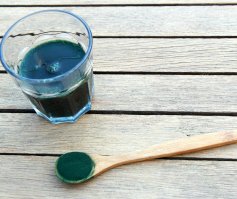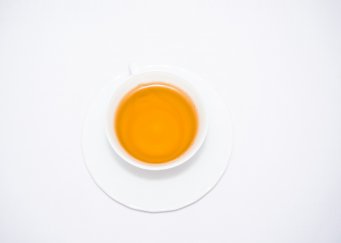 Cholesterol is divided into "good" and "bad". This good, abbreviated as HDL, is a high-density lipoprotein. They transport cholesterol from the body to the liver, where it is transformed. Bad cholesterol (LDL), or low-density lipoproteins, transports cholesterol from the liver to the body. Cholesterol, thanks to these lipoproteins, get into the blood extremely quickly, stick to the walls of blood vessels, reducing their light and even creating blockages. LDL cholesterol in the body leads to atherosclerosis. Currently, about 5 million Poles suffer from it.
Cholesterol is divided into "good" and "bad". This good, abbreviated as HDL, is a high-density lipoprotein. They transport cholesterol from the body to the liver, where it is transformed. Bad cholesterol (LDL), or low-density lipoproteins, transports cholesterol from the liver to the body. Cholesterol, thanks to these lipoproteins, get into the blood extremely quickly, stick to the walls of blood vessels, reducing their light and even creating blockages. LDL cholesterol in the body leads to atherosclerosis. Currently, about 5 million Poles suffer from it.
Is it possible to eliminate cholesterol?
Cholesterol is produced by the human body and is only produced in the amount necessary for proper functioning. He plays an important role in:
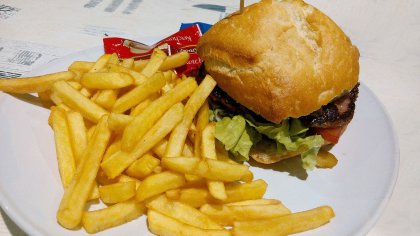 - synthesis of sex hormones - testosterone, estrogens;
- synthesis of sex hormones - testosterone, estrogens;
- building hormones of adrenal cortex, i.e. cortisol;
- synthesis of vitamin D3;
- in the process of fat digestion;
- the structure of the cell membrane;
- protection of nerve fibres against damage.
Cholesterol is therefore essential if the amount of cholesterol is at the correct level. The problem is that we take a very large amount of cholesterol with food, or more precisely, with meals rich in meat. In this way, we accumulate surpluses of this substance. These excessive amounts not only can, but also need to be reduced.
Rapid return to normality
If studies show that we suffer from excess cholesterol, we can reduce cholesterol levels in a short period of time. How is it possible? Meat dishes should be dispensed with. It is sometimes said that the consumption of beef and pork should be limited, while the meat of poultry or fish is relatively safe. If there is a high concentration of cholesterol in the blood, it is worth considering giving up meat altogether, because cholesterol is present in all types of meat, including fish.
When cholesterol levels fall to a normal level as a result of stopping meat dishes, small amounts of this product can be gradually included in the diet.
Diet with too much cholesterol
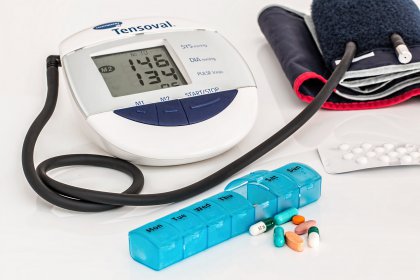 Increased cholesterol in blood is unfortunately not the domain of older people. Young people suffer from it more and more often. This is due to a diet rich in meat, fat and fast, highly processed food.
Increased cholesterol in blood is unfortunately not the domain of older people. Young people suffer from it more and more often. This is due to a diet rich in meat, fat and fast, highly processed food.
First of all, a diet rich in meat should be replaced by a diet rich in fruit and vegetables. Plants do not contain cholesterol at all, but the amount of vitamins, minerals and other ingredients necessary for the proper functioning of the body is huge in them. Fruit and vegetables are a source of fibre and flavonoids. Dietary fiber in the intestines, prevents absorption of cholesterol, while flavonoids prevent the development of atherosclerosis.
Avoid highly processed products. These are foods, which before they reach our stomach undergo a very long process of production, processing, enrichment with various types of additives. Such food contains very large amounts of hydrogenated fats (e.g. confectionary fats) and cheap refined oils.
Another group of foods that need to be eliminated from the diet are products containing white flour, i.e. all kinds of bread rolls, white bread, confectionery, etc., which have to be eliminated from the diet.
The way to increase the level of "bad" cholesterol is also to consume homogenised milk products. Homogenisation involves breaking down cow's milk fat molecules. In this way, small (broken) fat particles are absorbed into the body.
It is worth replacing refined oils and margarine with linseed oil. Unrefined linseed oil is a much more valuable source of Omega-3 acids than fish. Unrefined oils, cold pressed natural oils such as extra virgin olive oil or coconut oil are also valuable for our diet.
Which products should be included in the diet?
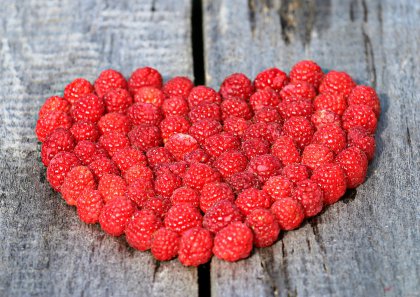 We have already mentioned the richness of linseed oil. Linseed, a valuable source of fibre, should also be included in the daily menu. The seeds of grandmother's Psyllium are also worth recommending. 2 -3 teaspoons of seeds should be flooded with lukewarm water and drunk after swelling. Another herb useful in the fight against cholesterol is spotted sputum. It regulates intestinal peristalsis, cleanses and lowers cholesterol levels.
We have already mentioned the richness of linseed oil. Linseed, a valuable source of fibre, should also be included in the daily menu. The seeds of grandmother's Psyllium are also worth recommending. 2 -3 teaspoons of seeds should be flooded with lukewarm water and drunk after swelling. Another herb useful in the fight against cholesterol is spotted sputum. It regulates intestinal peristalsis, cleanses and lowers cholesterol levels.
It is also worth eating nuts. Whether walnuts, Brazil nuts, cashews, hazelnuts or macadamia, they are all rich in Omega-6 fatty acids, vitamins and minerals.
Fruit and vegetables should be eaten naturally, especially freshly squeezed fruit and vegetable juices. Dried fruits also work well.
If you like to drink tea, choose teas that have an alkalising effect, such as Yerba Mate, green tea and all herbal and fruit teas (except those that contain cranberries).
What dishes must be dispensed with?
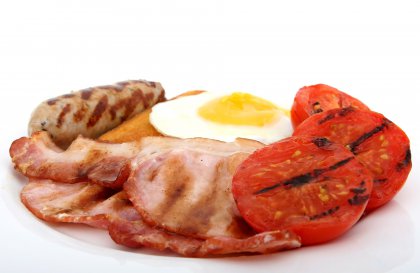
Reducing blood cholesterol must involve reducing or completely abandoning certain types of food. They include them:
- meat - pork, ducks, geese;
- offal;
- lard, tallow;
- sausages;
- yellow cheese;
- Creams;
- butter;
- eggs, especially egg yolks;
- cakes, in particular cakes and cakes from France
- fast-foods.


